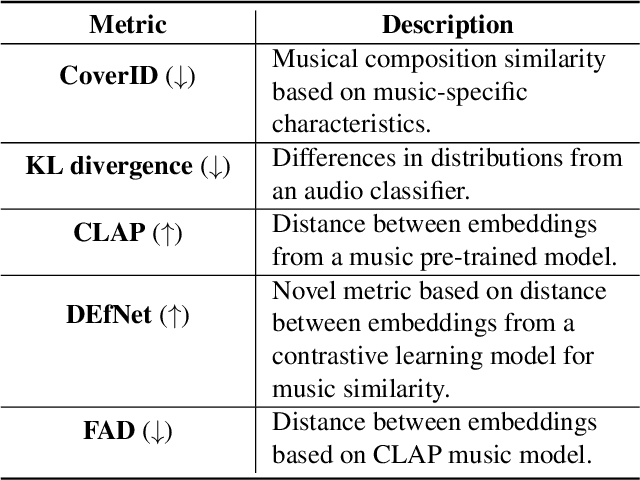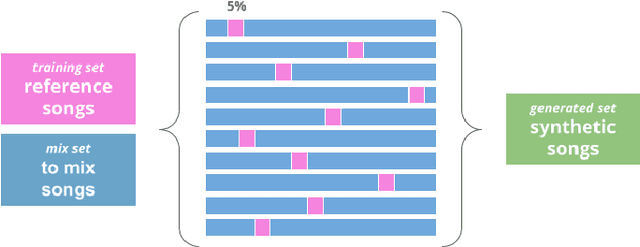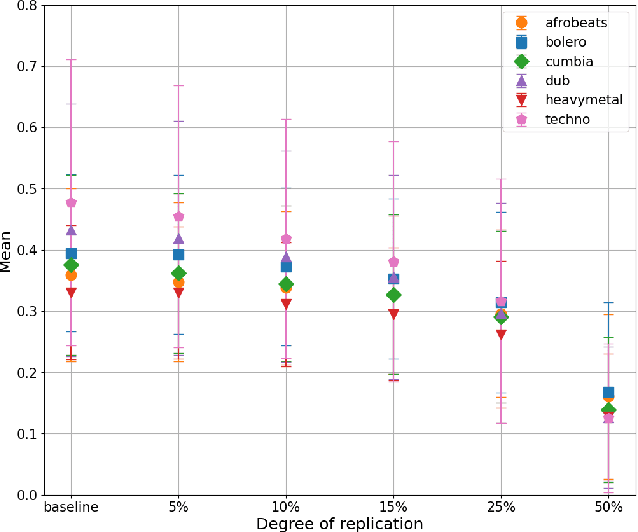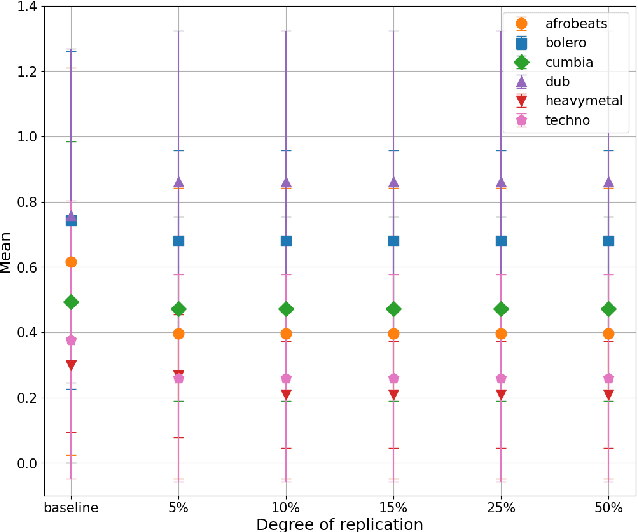Roser Batlle-Roca
Towards Assessing Data Replication in Music Generation with Music Similarity Metrics on Raw Audio
Jul 19, 2024



Abstract:Recent advancements in music generation are raising multiple concerns about the implications of AI in creative music processes, current business models and impacts related to intellectual property management. A relevant challenge is the potential replication and plagiarism of the training set in AI-generated music, which could lead to misuse of data and intellectual property rights violations. To tackle this issue, we present the Music Replication Assessment (MiRA) tool: a model-independent open evaluation method based on diverse audio music similarity metrics to assess data replication of the training set. We evaluate the ability of five metrics to identify exact replication, by conducting a controlled replication experiment in different music genres based on synthetic samples. Our results show that the proposed methodology can estimate exact data replication with a proportion higher than 10%. By introducing the MiRA tool, we intend to encourage the open evaluation of music generative models by researchers, developers and users concerning data replication, highlighting the importance of ethical, social, legal and economic consequences of generative AI in the music domain.
Leveraging Pre-Trained Autoencoders for Interpretable Prototype Learning of Music Audio
Feb 14, 2024


Abstract:We present PECMAE, an interpretable model for music audio classification based on prototype learning. Our model is based on a previous method, APNet, which jointly learns an autoencoder and a prototypical network. Instead, we propose to decouple both training processes. This enables us to leverage existing self-supervised autoencoders pre-trained on much larger data (EnCodecMAE), providing representations with better generalization. APNet allows prototypes' reconstruction to waveforms for interpretability relying on the nearest training data samples. In contrast, we explore using a diffusion decoder that allows reconstruction without such dependency. We evaluate our method on datasets for music instrument classification (Medley-Solos-DB) and genre recognition (GTZAN and a larger in-house dataset), the latter being a more challenging task not addressed with prototypical networks before. We find that the prototype-based models preserve most of the performance achieved with the autoencoder embeddings, while the sonification of prototypes benefits understanding the behavior of the classifier.
A Shift In Artistic Practices through Artificial Intelligence
Jun 13, 2023Abstract:The explosion of content generated by Artificial Intelligence models has initiated a cultural shift in arts, music, and media, where roles are changing, values are shifting, and conventions are challenged. The readily available, vast dataset of the internet has created an environment for AI models to be trained on any content on the web. With AI models shared openly, and used by many, globally, how does this new paradigm shift challenge the status quo in artistic practices? What kind of changes will AI technology bring into music, arts, and new media?
 Add to Chrome
Add to Chrome Add to Firefox
Add to Firefox Add to Edge
Add to Edge